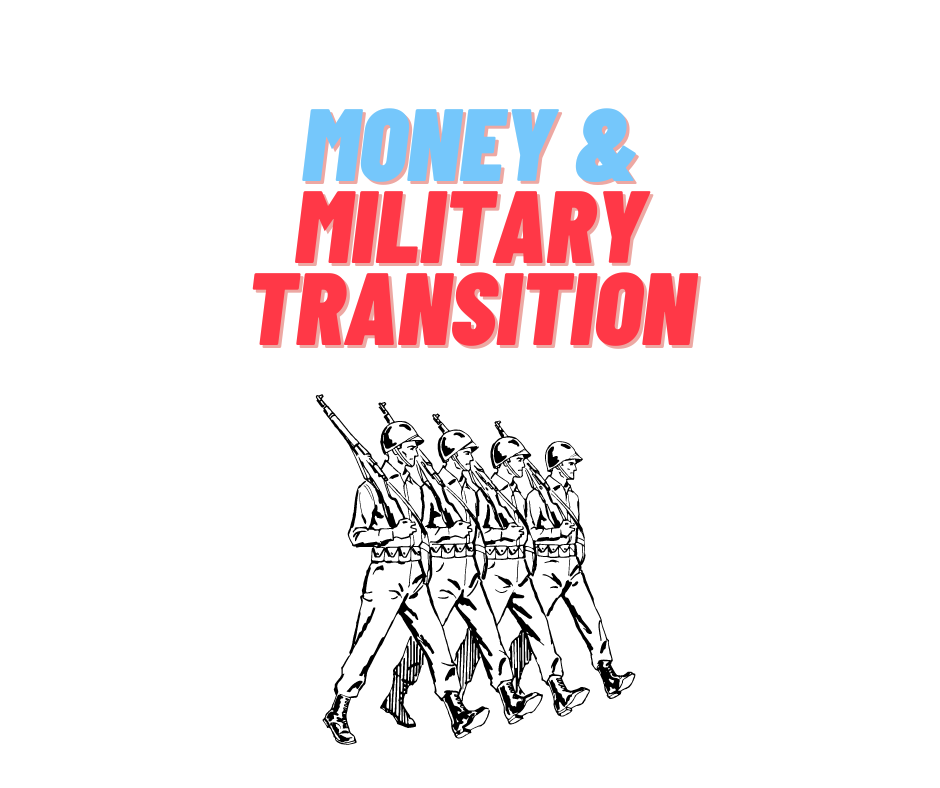Money and Military Transition

Bottom Line Up Front (BLUF): Transitioning from the military greatly changes your finances. Taxes will likely increase and life insurance (vs. just VGLI) should be reconsidered. Finally, have a solid investing plan for after transition, as investing more in TSP won’t be an option for most people.
Transitioning from the military can be an overwhelming endeavor. It certainly has been for me so far. Beyond the inevitable hunt for a second career (which brings its own uncertainties), there are also many financial concerns that transitioning military members must consider.
The Tax Man Cometh
There are a number of things that change in transition, and one of the most biggest adjustments is the amount of taxes that you’ll pay on your future income. Most who leave the military - including retirees - fully expect to get a new career after they leave the service. However, many are surprised by the level of taxes that they must pay when they get that job.
Why? Because a lot of military pay is not taxed, and this gives us a false expectation when it comes to taxes. For example, military entitlements like Basic Allowance for Housing (BAH) or Basic Allowing for Sustenance (BAS) are not taxed while you are in the military. However, when you retire, most (if not all) of your income is taxed.
Also, you may find yourself paying state taxes (and even city taxes) on your new income. For example, I’ll likely pay 5% in additional taxes on my new income in city/state taxes.
Finally, if you retire, your military pension will be taxed Federally (unless you are 10-40% disabled), and may be taxed by your state. Keep all of this in mind as you budget for the future, as you’ll need to earn more to overcome this taxation.
For more information on how tax brackets work, please read this post entitled, “How Do Tax Brackets Work… Simplified”.
Death and Taxes
Another blind spot for many military members is life insurance. While you have the option to convert your SGLI insurance into Veterans Group Life Insurance (VGLI), many don’t realize that the costs of this plan skyrockets as you age. In fact, after 5-10 years for many - especially retirees in their 40’s and 50’s - it becomes vastly more expensive than a simple term life insurance.
For me, I opted to purchase this life insurance a little over a year before retirement. Because of this, I was able to lock in a great rate on my primary life insurance - a $800K, 30-year term life insurance through the non-profit AAFMAA - along with an additional $400K of life insurance.
For more about my experience - and some of the pitfalls that come with this - please read this post entitled, “Should I Get Life Insurance Before I Retire or Separate?”.
Investing After The Military
Unless they are heading straight into a government civilian job after you leave the service, military members are no longer be able to contribute money into their Thrift Savings Plan (TSP). Their money will still be invested there, and they’ll still be able to manage it, but they can’t invest more.
Because sustained investing is key to building wealth long-term, members leaving the military need to consider how they will continue their investing after their separation or retirement. Though many companies offer 401K plans (with 401K matching!), not all do.
I recommend opening an Individual Retirement Account (IRA) before retirement. This way, you are ready when the time comes. Then, start by obtaining any 401K matching (by investing through your new employer). After that, invest as much as you are comfortable doing - up to the maximum $6K/year, or $500/month, in your IRA.
Should you invest in a Roth IRA or a traditional IRA? It depends. For those in a very low tax bracket after the military, a Roth IRA may make sense. However, for those who’ll earn a high salary after the military, a traditional IRA probably makes more sense. Why? Because of taxes.
With a traditional IRA, you receive reduce your taxable income with every dollar you invest in an IRA. If you are earning a high salary, this saves you from paying taxes at your highest tax bracket. When you start taking money in retirement, you’ll pay taxes on that amount then - including any growth - but likely at a lower tax bracket.
For more information about Roth IRAs vs Traditional IRAs, read this post entitled, “What’s the difference between an IRA and a Roth IRA?”.
For more about the steps I recommend for investing, read this series entitled, “The Step-by-Step Guide to (Passive) Military Investing”.
Get Help
I love being self-reliant, especially when it comes to finances. However, I don’t know everything. I’ve started talking to some financial professionals with the intent of getting a better grasp of my financial situation. Though I’m still very skeptical about some products that some try to sell (like whole life insurance), I have started to lean on their experience. I’ll provide more updates on this in future posts. However, I’m not doing it alone.
What else?
In truth, there are many things that I know I haven’t thought of yet (or haven’t heard about from the veteran community). Things like the costs of re-registering cars in a new state, or selling a house in a down market, etc. Like you, all I can do is cover as much as I can, and trust that I will overcome any additional financial hurdles that come my way.